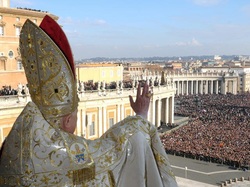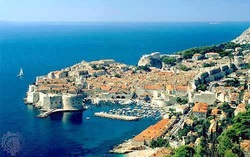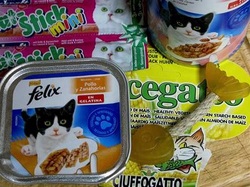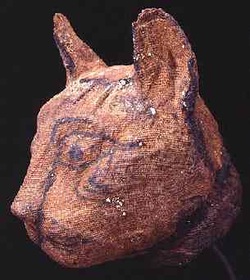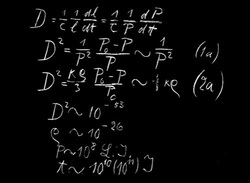Peter Porter
|
Always dominant in the Audio section of this website and now finally taking his due place among its guest poets, Peter Porter can be thought of as the household god of the whole enterprise. When I first arrived in London from Australia in the early 1960s, it was from his poetry that I got my first confirmation that the idea of cultural simultaneity might be a vision of the world. A decade before, he had made the same trip carrying the same notion, but he had already done a lot with it. For ten years at least – he was already writing seriously before he left home – his poetry had been teeming with the facts of contemporary life. The effigy of Phar Lap had been left behind in the Melbourne museum. Now there were Jensen and MG sports cars burbling down the King’s Road and vanishing on the road to Haslemere. But there were also updated epigrams from Martial, cantatas by Bach, paintings by Hieronymous Bosch. His poetry had everything, and all at once. It was classicism seen in terms of the modern age and the modern age seen in terms of the whole of history. It was a world in itself, but intimately connected to the world we were living in: connected by bonds of slang, wit, form and rhythm. It was so amazing that I couldn’t stand the pace, and for too long I tried to resist. But once I got to know the poetry better, resistance crumbled, and once I got to know the man who wrote it, I was enslaved. Like all his friends, I found his speaking voice an extension of what he wrote. The most learned and entertaining conversationalist in London, he was too modest to notice why his table was always crowded: nobody wanted to go home. With his 80th birthday approaching, I have taken the cue to mount a selection of his poems here, but the reader should be aware that this is only the smallest sample of a body of achievement that needs to be taken on in its entirety. The poet who named one of his many collections Once Bitten, Twice Bitten was not only making an ironic reference to himself, he was sending a direct signal to his readers about the addictive nature of his poetic voice. To the links leading to the poems, other links are appended, leading to all the other material by and about Peter Porter that can be found on the site. I am lucky enough to have my own name involved with quite a lot of it, from critical articles about his work to a whole swathe of recorded dialogues, one of them on video and a full 36 of them on audio, the latter collection being, as you might imagine, one of the most rewarding ventures I was ever caught up in. But his was the guiding light, no question. There are also links to some of his articles and solo broadcasts about the arts. Dedicated to his calling, he writes critical prose on a par with his verse, and really he has never written anything in either form that we can afford to ignore.
|
Metamorphosis
This new Daks suit, greeny-brown,
Oyster-coloured buttons, single vent, tapered
Trousers, no waistcoat, hairy tweed – my own:
A suit to show responsibility, to show
Return to life – easily got for two pounds down
Paid off in six months – the first stage in the change.
I am only the image I can force upon the town.
The town will have me: I stalk in glass,
A thin reflection in the windows, best
In jewellers’ velvet backgrounds – I don’t pass,
I stop, elect to look at wedding rings –
My figure filled with clothes, my putty mask,
A face fragrant with arrogance, stuffed
With recognition – I am myself at last.
I wait in the pub with my Worthington.
Then you come in – how many days did love have,
How can they be catalogued again?
We talk of how we miss each other – I tell
Some truth – you, cruel stories built of men:
‘It wasn’t good at first but he’s improving.’
More talk about his car, his drinks, his friends.
I look at the wild mirror at the bar –
A beautiful girl smiles beside me – she’s real
And her regret is real. If only I had a car,
If only – my stately self cringes, renders down;
As in a werewolf film I’m horrible, far
Below the collar – my fingers crack, my tyrant suit
Chokes me as it hugs me in its fire.
(from Once Bitten, Twice Bitten, 1961)
Oyster-coloured buttons, single vent, tapered
Trousers, no waistcoat, hairy tweed – my own:
A suit to show responsibility, to show
Return to life – easily got for two pounds down
Paid off in six months – the first stage in the change.
I am only the image I can force upon the town.
The town will have me: I stalk in glass,
A thin reflection in the windows, best
In jewellers’ velvet backgrounds – I don’t pass,
I stop, elect to look at wedding rings –
My figure filled with clothes, my putty mask,
A face fragrant with arrogance, stuffed
With recognition – I am myself at last.
I wait in the pub with my Worthington.
Then you come in – how many days did love have,
How can they be catalogued again?
We talk of how we miss each other – I tell
Some truth – you, cruel stories built of men:
‘It wasn’t good at first but he’s improving.’
More talk about his car, his drinks, his friends.
I look at the wild mirror at the bar –
A beautiful girl smiles beside me – she’s real
And her regret is real. If only I had a car,
If only – my stately self cringes, renders down;
As in a werewolf film I’m horrible, far
Below the collar – my fingers crack, my tyrant suit
Chokes me as it hugs me in its fire.
(from Once Bitten, Twice Bitten, 1961)
John Marston Advises Anger
All the boys are howling to take the girls to bed.
Our betters say it’s a seedy world. The critics say
Think of them as an Elizabethan Chelsea set.
Then they’ve never listened to our lot – no talk
Could be less like – but the bodies are the same:
Those jeans and bums and sweaters of the King’s Road
Would fit Marston’s stage. What’s in a name,
If Cheapside and the Marshalsea mean Eng. Lit.
And the Fantasie, Sa Tortuga, Grisbi, Bongi-Bo
Mean life? A cliché? What hurts dies on paper,
Fades to classic pain. Love goes as the MG goes.
The colonel’s daughter in black stockings, hair
Like sash cords, face iced-white, studies art,
Goes home once a month. She won’t marry the men
She sleeps with, she’ll revert to type – it’s part
Of the side-show: Mummy and Daddy in the wings,
The bongos fading on the road to Haslemere
Where inheritors are inheriting still.
Marston’s Malheureux found his whore too dear;
Today some Jazz Club girl on the social make
Would put him through his paces, the aphrodisiac cruel.
His friends would be the smoothies of our Elizabethan age –
The Rally Men, Grantchester Breakfast Men, Public School
Personal Assistants and the fragrant PROs,
Cavalry-twilled tame publishers praising Logue,
Classics Honours Men promoting Jazzetry,
Market Researchers married into Vogue.
It’s a Condé Nast world and so Marston’s was.
His had a real gibbet – our death’s out of sight.
The same thin richness of these worlds remains –
The flesh-packed jeans, the car-stung appetite
Volley on his stage, the cage of discontent.
(from Once Bitten, Twice Bitten, 1961)
Our betters say it’s a seedy world. The critics say
Think of them as an Elizabethan Chelsea set.
Then they’ve never listened to our lot – no talk
Could be less like – but the bodies are the same:
Those jeans and bums and sweaters of the King’s Road
Would fit Marston’s stage. What’s in a name,
If Cheapside and the Marshalsea mean Eng. Lit.
And the Fantasie, Sa Tortuga, Grisbi, Bongi-Bo
Mean life? A cliché? What hurts dies on paper,
Fades to classic pain. Love goes as the MG goes.
The colonel’s daughter in black stockings, hair
Like sash cords, face iced-white, studies art,
Goes home once a month. She won’t marry the men
She sleeps with, she’ll revert to type – it’s part
Of the side-show: Mummy and Daddy in the wings,
The bongos fading on the road to Haslemere
Where inheritors are inheriting still.
Marston’s Malheureux found his whore too dear;
Today some Jazz Club girl on the social make
Would put him through his paces, the aphrodisiac cruel.
His friends would be the smoothies of our Elizabethan age –
The Rally Men, Grantchester Breakfast Men, Public School
Personal Assistants and the fragrant PROs,
Cavalry-twilled tame publishers praising Logue,
Classics Honours Men promoting Jazzetry,
Market Researchers married into Vogue.
It’s a Condé Nast world and so Marston’s was.
His had a real gibbet – our death’s out of sight.
The same thin richness of these worlds remains –
The flesh-packed jeans, the car-stung appetite
Volley on his stage, the cage of discontent.
(from Once Bitten, Twice Bitten, 1961)
Who Gets the Pope’s Nose?
It is so tiring having to look after the works of God.
The sea will run away
From martyr’s feet, gay
Dissipated Florentines kiss tumours out of a man’s head,
Scheduled liquefactions renew saint’s blood,
In Andean villages starved Inca girls
Develop the stigmata,
Dying dogs pronounce the Pater
Noster on the vivisection table, the World
Press report trachoma’d eyes that drip wide pearls.
All investigated, all authenticated, all
Miracles beyond doubt.
Yet messengers go in and out,
The Vatican fills up with paper. The faithful
Work for a Merchant God who deals in souls.
Was there ever a man in Nazareth who was King of Kings?
There is a fat man in Rome
To guide his people home.
Bring back the rack and set the bones straining.
For faith needs pain to help with its explaining.
Fill a glass with water and gaze into it.
There is the perfect rule
Which no God can repeal.
Having to cope with death, the extraordinary visit,
Ordinary man swills in a holy sweat.
And high above Rome in a room with wireless
The Pope also waits to die.
God is the heat in July
And the iron band of pus tightening in the chest.
Of all God’s miracles, death is the greatest.
(From Once Bitten, Twice Bitten, 1964)
The sea will run away
From martyr’s feet, gay
Dissipated Florentines kiss tumours out of a man’s head,
Scheduled liquefactions renew saint’s blood,
In Andean villages starved Inca girls
Develop the stigmata,
Dying dogs pronounce the Pater
Noster on the vivisection table, the World
Press report trachoma’d eyes that drip wide pearls.
All investigated, all authenticated, all
Miracles beyond doubt.
Yet messengers go in and out,
The Vatican fills up with paper. The faithful
Work for a Merchant God who deals in souls.
Was there ever a man in Nazareth who was King of Kings?
There is a fat man in Rome
To guide his people home.
Bring back the rack and set the bones straining.
For faith needs pain to help with its explaining.
Fill a glass with water and gaze into it.
There is the perfect rule
Which no God can repeal.
Having to cope with death, the extraordinary visit,
Ordinary man swills in a holy sweat.
And high above Rome in a room with wireless
The Pope also waits to die.
God is the heat in July
And the iron band of pus tightening in the chest.
Of all God’s miracles, death is the greatest.
(From Once Bitten, Twice Bitten, 1964)
The Great Poet Comes Here in Winter
Frau Antonia is a cabbage:
If I were a grub I’d eat a hole in her.
Here they deliver the milk up a private path
Slippery as spit – her goddess’ hands
Turn it to milk puddings. Blow, little wind,
Steer in off this cardboard sea,
You are acclimatized like these vines
Warring on an inch of topsoil
You are agent of the Golden Republic,
So still blow for me – our flowers look one way,
If I were a good poet I would walk on the sea.
The sea is actually made of eyes.
Whether of drowned fishermen or of peasants
Accustomed to the hard bargains of the saints
I cannot say. Whether there will be
Any mail from Paris or even broccoli
For dinner is in doubt. My hat blew off the planet,
I knelt by the infinite sand of the stars
And prayed for all men. Being German, I have a lot of soul.
Nevertheless, why am I crying in this garden?
I refuse to die till fashion comes back to spats.
From this turret the Adriatic
Burns down the galley lanes to starved Ragusa,
How strange it can wash up condoms.
The world is coming unstitched at the seams.
All yesterday the weather was a taste
In my mouth, I saw the notes of Beethoven
Lying on the ground, from the horn
Of a gramophone I heard Crivelli’s cucumbers
Crying out for paint. In the eyes of a stray bitch
Ribbed with hunger, heavy with young,
I saw the peneplain of all imagined
Misery, horizontal and wider than the world.
I gave her my unwrapped sugar. We said Mass
Together, she licking my fingers and me
Knowing how she would die, not glad to have lived.
She took her need away, I thought her selfish
But stronger than God and more beautiful company.
(from Poems Ancient & Modern, 1964)
If I were a grub I’d eat a hole in her.
Here they deliver the milk up a private path
Slippery as spit – her goddess’ hands
Turn it to milk puddings. Blow, little wind,
Steer in off this cardboard sea,
You are acclimatized like these vines
Warring on an inch of topsoil
You are agent of the Golden Republic,
So still blow for me – our flowers look one way,
If I were a good poet I would walk on the sea.
The sea is actually made of eyes.
Whether of drowned fishermen or of peasants
Accustomed to the hard bargains of the saints
I cannot say. Whether there will be
Any mail from Paris or even broccoli
For dinner is in doubt. My hat blew off the planet,
I knelt by the infinite sand of the stars
And prayed for all men. Being German, I have a lot of soul.
Nevertheless, why am I crying in this garden?
I refuse to die till fashion comes back to spats.
From this turret the Adriatic
Burns down the galley lanes to starved Ragusa,
How strange it can wash up condoms.
The world is coming unstitched at the seams.
All yesterday the weather was a taste
In my mouth, I saw the notes of Beethoven
Lying on the ground, from the horn
Of a gramophone I heard Crivelli’s cucumbers
Crying out for paint. In the eyes of a stray bitch
Ribbed with hunger, heavy with young,
I saw the peneplain of all imagined
Misery, horizontal and wider than the world.
I gave her my unwrapped sugar. We said Mass
Together, she licking my fingers and me
Knowing how she would die, not glad to have lived.
She took her need away, I thought her selfish
But stronger than God and more beautiful company.
(from Poems Ancient & Modern, 1964)
The Sadness of the Creatures
We live in a third-floor flat
among gentle predators
and our food comes often
frozen but in its own shape
(for we hate euphemisms
as you would expect) and our cat’s
food comes in tins, other than
scraps of the real thing and she
like a clever cat makes milk
of it for her kittens: we shout
of course but it’s electric
like those phantom storms
in the tropics and we think of
the neighbours – I’m not writing
this to say how guilty
we are like some well-paid
theologian at an American
College on a lake
or even to congratulate
the greedy kittens who have
found their mittens and are up
to their eyes in pie – I know
lots of ways of upsetting
God’s syllogisms, real
seminar-shakers some of them,
but I’m an historical cat
and I run on rails and so
I don’t frame those little poems
which take three lines to
get under your feet –
you know the kind of thing –
The water I boiled the lobster in
is cool enough to top
up the chrysanthemums.
No, I’m acquisitive and have
one hundred and seven Bach
Cantatas at the last count,
but these are things of the spirit
and my wife and our children
and I are animals (biologically
speaking) which is how the world
talks to us, moving on the billiard
table of green London, the sun’s
red eye and the cat’s green eye
focusing for an end. I know
and you know and we all know
that a certain end of each of us
could be the end of all of us,
but if you asked me what
frightened me most, I wouldn’t
say the total bang or even
the circling clot in the red drains
but the picture of a lit room
where two people not disposed
to quarrel have met so
oblique a slant of the dark
they can find no words for
their appalled hurt but only
ride the rearing greyness:
there is convalescence from this,
jokes and love and reassurance,
but never enough and never
convincing and when the cats
come brushing for food their soft
aggression is hateful;
the trees rob the earth and the earth
sucks the rain and the children
burgeon in a time of invalids –
it seems a trio sonata
is playing from a bullock’s
skull and the God of Man
is born in a tub of entrails;
all man’s regret is no more
then Attila with a cold
and no Saviour here or
in Science Fiction will come
without a Massacre of the Innocents
and a Rape of El Dorado.
(from The Last of England, 1970)
among gentle predators
and our food comes often
frozen but in its own shape
(for we hate euphemisms
as you would expect) and our cat’s
food comes in tins, other than
scraps of the real thing and she
like a clever cat makes milk
of it for her kittens: we shout
of course but it’s electric
like those phantom storms
in the tropics and we think of
the neighbours – I’m not writing
this to say how guilty
we are like some well-paid
theologian at an American
College on a lake
or even to congratulate
the greedy kittens who have
found their mittens and are up
to their eyes in pie – I know
lots of ways of upsetting
God’s syllogisms, real
seminar-shakers some of them,
but I’m an historical cat
and I run on rails and so
I don’t frame those little poems
which take three lines to
get under your feet –
you know the kind of thing –
The water I boiled the lobster in
is cool enough to top
up the chrysanthemums.
No, I’m acquisitive and have
one hundred and seven Bach
Cantatas at the last count,
but these are things of the spirit
and my wife and our children
and I are animals (biologically
speaking) which is how the world
talks to us, moving on the billiard
table of green London, the sun’s
red eye and the cat’s green eye
focusing for an end. I know
and you know and we all know
that a certain end of each of us
could be the end of all of us,
but if you asked me what
frightened me most, I wouldn’t
say the total bang or even
the circling clot in the red drains
but the picture of a lit room
where two people not disposed
to quarrel have met so
oblique a slant of the dark
they can find no words for
their appalled hurt but only
ride the rearing greyness:
there is convalescence from this,
jokes and love and reassurance,
but never enough and never
convincing and when the cats
come brushing for food their soft
aggression is hateful;
the trees rob the earth and the earth
sucks the rain and the children
burgeon in a time of invalids –
it seems a trio sonata
is playing from a bullock’s
skull and the God of Man
is born in a tub of entrails;
all man’s regret is no more
then Attila with a cold
and no Saviour here or
in Science Fiction will come
without a Massacre of the Innocents
and a Rape of El Dorado.
(from The Last of England, 1970)
Mort aux Chats
There will be no more cats.
Cats spread infection,
cats pollute the air,
cats consume seven times
their own weight in food a week,
cats were worshipped in
decadent societies (Egypt
and Ancient Rome), the Greeks
had no use for cats. Cats
sit down to pee (our scientists
have proved it). The copulation
of cats is harrowing; they
are unbearably fond of the moon.
Perhaps they are all right in
their own country but their
traditions are alien to ours.
Cats smell, they can’t help it,
you notice it going upstairs.
Cats watch too much television,
they can sleep through storms,
they stabbed us in the back
last time. There have never been
any great artists who were cats.
They don’t deserve a capital C
except at the beginning of a sentence.
I blame my headache and my
plants dying on to cats.
Our district is full of them,
property values are falling.
When I dream of God I see
a Massacre of Cats. Why
should they insist on their own
language and religion, who
needs to purr to make a point?
Death to all cats! The Rule
of Dogs shall last a thousand years!
(From Preaching to the Converted, 1972)
Cats spread infection,
cats pollute the air,
cats consume seven times
their own weight in food a week,
cats were worshipped in
decadent societies (Egypt
and Ancient Rome), the Greeks
had no use for cats. Cats
sit down to pee (our scientists
have proved it). The copulation
of cats is harrowing; they
are unbearably fond of the moon.
Perhaps they are all right in
their own country but their
traditions are alien to ours.
Cats smell, they can’t help it,
you notice it going upstairs.
Cats watch too much television,
they can sleep through storms,
they stabbed us in the back
last time. There have never been
any great artists who were cats.
They don’t deserve a capital C
except at the beginning of a sentence.
I blame my headache and my
plants dying on to cats.
Our district is full of them,
property values are falling.
When I dream of God I see
a Massacre of Cats. Why
should they insist on their own
language and religion, who
needs to purr to make a point?
Death to all cats! The Rule
of Dogs shall last a thousand years!
(From Preaching to the Converted, 1972)
An Angel in Blythburgh Church
Shot down from its enskied formation,
This stern-faced plummet rests against the wall;
Cromwell’s soldiers peppered it and now the death
-watch beetle has it in thrall.
If you make fortunes from wool, along
The weeping winter foreshores of the tide,
You build big churches with clerestories
And place angels high inside.
Their painted faces guard and guide. Now or
Tomorrow or whenever is the promise –
The resurrection comes: fix your eyes halfway
Between Heaven and Diss.
The face is crudely carved, simplified by wind;
It looks straight at God and waits for orders,
Buffeted by the organ militant, and blasted
By choristers and recorders.
Faith would have our eyes as wooden and as certain.
It might be worth it, to start the New Year’s hymn
Allowing for death as a mere calculation,
A depreciation, entered in.
Or so I fancy looking at the roof beams
Where the dangerous beetle sails. What is it
Turns an atheist’s mind to prayer in almost
Any church on a country visit?
Greed for love or certainty or forgiveness?
High security rising with the sea birds?
A theology of self looking for precedents?
A chance to speak old words?
Rather, I think of a woman lying on her bed
Staring for hours up to the ceiling where
Nothing is projected – death the only angel
To shield her from despair.
(from The Cost of Seriousness, 1978)
This stern-faced plummet rests against the wall;
Cromwell’s soldiers peppered it and now the death
-watch beetle has it in thrall.
If you make fortunes from wool, along
The weeping winter foreshores of the tide,
You build big churches with clerestories
And place angels high inside.
Their painted faces guard and guide. Now or
Tomorrow or whenever is the promise –
The resurrection comes: fix your eyes halfway
Between Heaven and Diss.
The face is crudely carved, simplified by wind;
It looks straight at God and waits for orders,
Buffeted by the organ militant, and blasted
By choristers and recorders.
Faith would have our eyes as wooden and as certain.
It might be worth it, to start the New Year’s hymn
Allowing for death as a mere calculation,
A depreciation, entered in.
Or so I fancy looking at the roof beams
Where the dangerous beetle sails. What is it
Turns an atheist’s mind to prayer in almost
Any church on a country visit?
Greed for love or certainty or forgiveness?
High security rising with the sea birds?
A theology of self looking for precedents?
A chance to speak old words?
Rather, I think of a woman lying on her bed
Staring for hours up to the ceiling where
Nothing is projected – death the only angel
To shield her from despair.
(from The Cost of Seriousness, 1978)
An Exequy
In wet May, in the months of change,
In a country you wouldn’t visit, strange
Dreams pursue me in my sleep,
Black creatures of the upper deep –
Though you are five months dead, I see
You in guilt’s iconography,
Dear Wife, lost beast, beleaguered child,
The stranded monster with the mild
Appearance, whom small waves tease,
(Andromeda upon her knees
In orthodox deliverance)
And you alone of pure substance,
The unformed form of life, the earth
Which Piero’s brushes brought to birth
For all to greet as myth, a thing
Out of the box of imagining.
This introduction serves to sing
Your mortal death as Bishop King
Once hymned in tetrametric rhyme
His young wife, lost before her time;
Though he lived on for many years
His poem each day fed new tears
To that unreaching spot, her grave,
His lines a baroque architrave
The Sunday poor with bottled flowers
Would by-pass in their morning hours,
Esteeming ragged natural life
(‘Most dear loved, most gentle wife’),
Yet, looking back when at the gate
And seeing grief in formal state
Upon a sculpted angel group,
Were glad that men of god could stoop
To give the dead a public stance
And freeze them in their mortal dance.
The words and faces proper to
My misery are private – you
Would never share our heart with those
Whose only talent’s to suppose,
Nor from your final childish bed
Raise a remote confessing head –
The channels of our lives are blocked,
The hand is stopped upon the clock,
No one can say why hearts will break
And marriages are all opaque:
A map of loss, some posted cards,
The living house reduced to shards,
The abstract hell of memory,
The pointlessness of poetry –
These are the instances which tell
Of something which I know full well,
I owe a death to you – one day
The time will come for me to pay
When your slim shape from photographs
Stands at my door and gently asks
If I have any work to do
Or will I come to bed with you.
O scala enigmata,
I’ll climb up to that attic where
The curtain of your life was drawn
Some time between despair and dawn –
I’ll never know with what halt steps
You mounted to this plain eclipse
But each stair now will station me
A black responsibility
And point me to that shut-down room,
‘This be your due appointed tomb.’
I think of us in Italy:
Gin-and-chianti-fuelled, we
Move in a trance through Paradise,
Feeding at last our starving eyes,
Two people of the English blindness
Doing each masterpiece the kindness
Of discovering it – from Baldovinetti
To Venice’s most obscure jetty.
A true unfortunate traveller, I
Depend upon your nurse’s eye
To pick the altars where no Grinner
Puts us off our tourists’ dinner
And in hotels to bandy words
With Genevan girls and talking birds,
To wear your feet out following me
To night’s end and true amity,
And call my rational fear of flying
A paradigm of Holy Dying –
And, oh my love, I wish you were
Once more with me, at night somewhere
In narrow streets applauding wines,
The moon above the Apennines
As large as logic and the stars,
Most middle-aged of avatars,
As bright as when they shone for truth
Upon untried and avid youth.
The rooms and days we wandered through
Shrink in my mind to one – there you
Lie quite absorbed by peace – the calm
Which life could not provide is balm
In death. Unseen by me, you look
Past bed and stairs and half-read book
Eternally upon your home,
The end of pain, the left alone.
I have no friend, no intercessor,
No psychopomp or true confessor
But only you who know my heart
In every cramped and devious part –
Then take my hand and lead me out,
The sky is overcast by doubt,
The time has come, I listen for
Your words of comfort at the door,
O guide me through the shoals of fear –
‘Fürchte dich nicht, ich bin bei dir.’
(from The Cost of Seriousness, 1978)
In a country you wouldn’t visit, strange
Dreams pursue me in my sleep,
Black creatures of the upper deep –
Though you are five months dead, I see
You in guilt’s iconography,
Dear Wife, lost beast, beleaguered child,
The stranded monster with the mild
Appearance, whom small waves tease,
(Andromeda upon her knees
In orthodox deliverance)
And you alone of pure substance,
The unformed form of life, the earth
Which Piero’s brushes brought to birth
For all to greet as myth, a thing
Out of the box of imagining.
This introduction serves to sing
Your mortal death as Bishop King
Once hymned in tetrametric rhyme
His young wife, lost before her time;
Though he lived on for many years
His poem each day fed new tears
To that unreaching spot, her grave,
His lines a baroque architrave
The Sunday poor with bottled flowers
Would by-pass in their morning hours,
Esteeming ragged natural life
(‘Most dear loved, most gentle wife’),
Yet, looking back when at the gate
And seeing grief in formal state
Upon a sculpted angel group,
Were glad that men of god could stoop
To give the dead a public stance
And freeze them in their mortal dance.
The words and faces proper to
My misery are private – you
Would never share our heart with those
Whose only talent’s to suppose,
Nor from your final childish bed
Raise a remote confessing head –
The channels of our lives are blocked,
The hand is stopped upon the clock,
No one can say why hearts will break
And marriages are all opaque:
A map of loss, some posted cards,
The living house reduced to shards,
The abstract hell of memory,
The pointlessness of poetry –
These are the instances which tell
Of something which I know full well,
I owe a death to you – one day
The time will come for me to pay
When your slim shape from photographs
Stands at my door and gently asks
If I have any work to do
Or will I come to bed with you.
O scala enigmata,
I’ll climb up to that attic where
The curtain of your life was drawn
Some time between despair and dawn –
I’ll never know with what halt steps
You mounted to this plain eclipse
But each stair now will station me
A black responsibility
And point me to that shut-down room,
‘This be your due appointed tomb.’
I think of us in Italy:
Gin-and-chianti-fuelled, we
Move in a trance through Paradise,
Feeding at last our starving eyes,
Two people of the English blindness
Doing each masterpiece the kindness
Of discovering it – from Baldovinetti
To Venice’s most obscure jetty.
A true unfortunate traveller, I
Depend upon your nurse’s eye
To pick the altars where no Grinner
Puts us off our tourists’ dinner
And in hotels to bandy words
With Genevan girls and talking birds,
To wear your feet out following me
To night’s end and true amity,
And call my rational fear of flying
A paradigm of Holy Dying –
And, oh my love, I wish you were
Once more with me, at night somewhere
In narrow streets applauding wines,
The moon above the Apennines
As large as logic and the stars,
Most middle-aged of avatars,
As bright as when they shone for truth
Upon untried and avid youth.
The rooms and days we wandered through
Shrink in my mind to one – there you
Lie quite absorbed by peace – the calm
Which life could not provide is balm
In death. Unseen by me, you look
Past bed and stairs and half-read book
Eternally upon your home,
The end of pain, the left alone.
I have no friend, no intercessor,
No psychopomp or true confessor
But only you who know my heart
In every cramped and devious part –
Then take my hand and lead me out,
The sky is overcast by doubt,
The time has come, I listen for
Your words of comfort at the door,
O guide me through the shoals of fear –
‘Fürchte dich nicht, ich bin bei dir.’
(from The Cost of Seriousness, 1978)
Doll's House
Against the haunting of our cats
Shy raids by children visiting, it stays
As truthful as the willow flats
Which blocked her days.
Its owner slammed the door and fled
Like Nora to the liberal hinterland.
What could resite that jostled bed?
No grown-up hand.
The miniature hoover lies
Brim-full of dust, the chest of drawers gapes;
On holidays a sobbing tries
To fluff the drapes.
And now to play at house you need
Another sort of house inside your head
Where duty states you soothe and feed
The plastic dead.
Her children have outgrown it too,
But do they hear the twisting of the key,
Entail their ruined space in lieu
Of charity?
Love, orderer of dolls and towns,
Has Lilliputianized the scale of pain,
So the wide adult eye looks down
Bereaved again
Of esperance, the childhood flush,
And has no passage into afternoons
But through diminished doors and hush
Of darkened rooms.
(From Fast Forward, 1984)
Shy raids by children visiting, it stays
As truthful as the willow flats
Which blocked her days.
Its owner slammed the door and fled
Like Nora to the liberal hinterland.
What could resite that jostled bed?
No grown-up hand.
The miniature hoover lies
Brim-full of dust, the chest of drawers gapes;
On holidays a sobbing tries
To fluff the drapes.
And now to play at house you need
Another sort of house inside your head
Where duty states you soothe and feed
The plastic dead.
Her children have outgrown it too,
But do they hear the twisting of the key,
Entail their ruined space in lieu
Of charity?
Love, orderer of dolls and towns,
Has Lilliputianized the scale of pain,
So the wide adult eye looks down
Bereaved again
Of esperance, the childhood flush,
And has no passage into afternoons
But through diminished doors and hush
Of darkened rooms.
(From Fast Forward, 1984)
Max is Missing
The stars are there as mathematics is,
The very there of nothing to be proved.
And so we say that theorems rely
On axioms or proof by the absurd.
The stars outshine the tenses, kings on plinths,
And each enigma of the numerate,
While all along our mathematicians fear
They’re stalking-horses of an abstract god,
And posit the suspicion there’s no room
For rich historic tit-bits in their space –
The big and little of it, shrunk or spun,
A million needle-points, a ‘Mono-Ange’.
Out of the corner of Philosophy’s eye
A Mathematician’s pinning on a post
Max is missing: ginger tabby cat
With white sabots – reward for his return.
The government of integers will wait
While our researcher searches for his cat,
The stars be patient, God donate his time –
A theorem is for Christmas, but a cat
Is for forever. Come home, Maximus,
The magnets on the fridge are slipping down.
The page is Luddite quite as stars are bright,
A ball-point and a brain out-twinkle them.
Should stars know Max is missing, would they guess
How little he must miss them where he is?
(From Max Is Missing, 2001)
The very there of nothing to be proved.
And so we say that theorems rely
On axioms or proof by the absurd.
The stars outshine the tenses, kings on plinths,
And each enigma of the numerate,
While all along our mathematicians fear
They’re stalking-horses of an abstract god,
And posit the suspicion there’s no room
For rich historic tit-bits in their space –
The big and little of it, shrunk or spun,
A million needle-points, a ‘Mono-Ange’.
Out of the corner of Philosophy’s eye
A Mathematician’s pinning on a post
Max is missing: ginger tabby cat
With white sabots – reward for his return.
The government of integers will wait
While our researcher searches for his cat,
The stars be patient, God donate his time –
A theorem is for Christmas, but a cat
Is for forever. Come home, Maximus,
The magnets on the fridge are slipping down.
The page is Luddite quite as stars are bright,
A ball-point and a brain out-twinkle them.
Should stars know Max is missing, would they guess
How little he must miss them where he is?
(From Max Is Missing, 2001)



